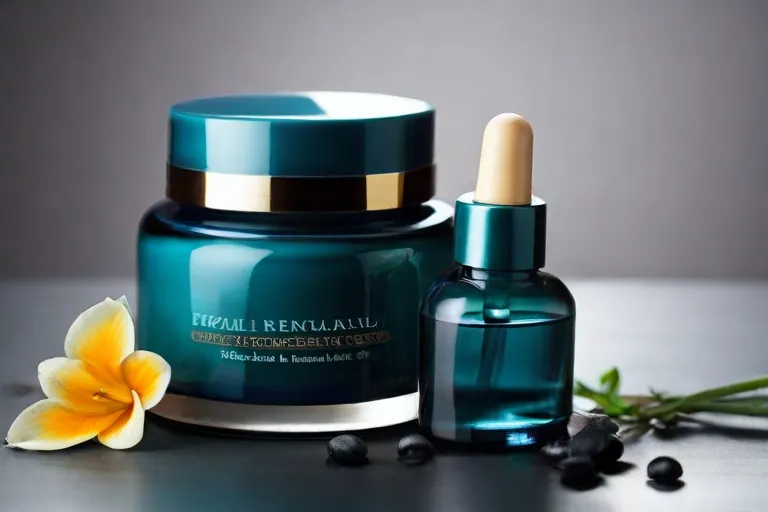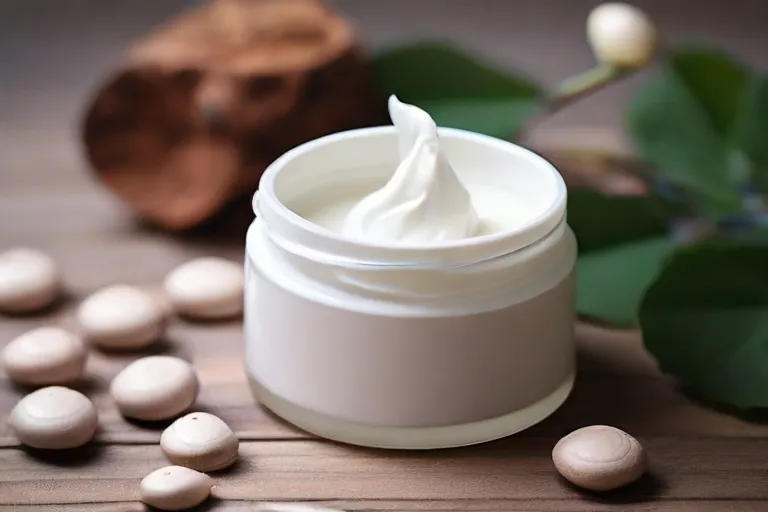How Does Proper Skincare Contribute to Overall Health and Well-being?

How Does Proper Skincare Contribute to Overall Health and Well-being?
Ensuring proper skincare is not just about looking good on the outside; it also plays a crucial role in our overall health and well-being. Skin, being the body's largest organ, acts as a protective barrier against harmful elements such as UV rays, pollution, and bacteria. By taking care of our skin, we are not only preserving its appearance but also protecting our health in the long run.
Key Takeaways:
- Healthy skin, healthy body: Proper skincare routines can lead to healthier and more radiant skin, reducing the risk of skin conditions and infections.
- Boost in self-confidence: Taking care of your skin can improve self-esteem and boost confidence levels, positively impacting mental well-being.
- Protection from environmental factors: Skincare products with SPF can protect your skin from harmful UV rays, reducing the risk of skin cancer and premature aging.
- Improved overall health: Skincare routines that include drinking water, eating a balanced diet, and exercising can contribute to better overall health and well-being.
- Mindfulness and self-care: Taking the time to perform skincare routines can promote relaxation, reduce stress, and enhance mindfulness practices for better mental health.
Understanding the Skin
The Function of the Skin in Overall Health
With its versatile nature, the skin plays a crucial role in maintaining overall health. It acts as a protective barrier, shielding the body from harmful substances, UV radiation, and pathogens. The skin also helps regulate body temperature, prevent dehydration, and sense touch, pressure, heat, and cold. Additionally, it plays a vital role in synthesizing vitamin D when exposed to sunlight.
The Layers of the Skin and Their Roles
Skin is composed of three main layers: the epidermis, dermis, and subcutaneous tissue. Each layer has specific functions that contribute to the overall health of the skin. The epidermis serves as the outermost layer, providing protection and regulating moisture. The dermis contains blood vessels, nerves, and hair follicles, aiding in sensation and regulating temperature. The subcutaneous tissue provides insulation and acts as a cushion for the body.
Function: The epidermis, dermis, and subcutaneous tissue work together to protect the body from external elements, regulate temperature, and provide sensation. The dermis is where collagen and elastin, which give skin its strength and elasticity, are found. Maintaining the health and integrity of these layers is crucial for overall skin health.
Foundation of Proper Skincare
Obviously, taking care of your skin is essential for overall health and well-being. A proper skincare routine not only helps you maintain healthy and glowing skin but also contributes to your confidence and self-esteem.
Identifying Your Skin Type
Knowing your skin type is the first step in establishing an effective skincare regimen. Whether you have oily, dry, combination, or sensitive skin, understanding your skin's unique needs will help you choose the right products and treatments.
It's recommended to consult with a dermatologist or skincare professional to determine your skin type accurately. Once you know your skin type, you can select skincare products that are tailored to address specific concerns and promote overall skin health.
Essential Skincare Products and Their Benefits
Incorporating essential skincare products into your daily routine can make a significant difference in the health and appearance of your skin. Cleansers help remove dirt and impurities, moisturizers hydrate and nourish the skin, and sunscreen provides crucial protection against harmful UV rays.
Any skincare routine should include products that target specific skin concerns, such as acne, aging, or hyperpigmentation. Using high-quality skincare products formulated with natural ingredients can enhance the effectiveness of your routine and promote healthier skin in the long run.
Skincare products containing antioxidants, like vitamin C and E, can help protect the skin from environmental damage and premature aging. Additionally, using products with hyaluronic acid can boost hydration and improve skin texture, leaving your skin looking plump and youthful.
The Role of Sun Protection
Sun protection is a crucial step in any skincare routine, as exposure to harmful UV rays can lead to sunburn, premature aging, and an increased risk of skin cancer. Incorporating a broad-spectrum sunscreen with at least SPF 30 into your daily regimen can help prevent sun damage and maintain healthy skin.
Proper application of sunscreen is key to its effectiveness. Be sure to apply sunscreen generously to all exposed skin areas, including your face, neck, and hands. Reapply sunscreen every two hours, or more frequently if swimming or sweating, to ensure continuous protection throughout the day.

Daily Skincare Routines
Morning Skincare Steps for Optimal Health
For a healthy start to your day, it's important to establish a consistent morning skincare routine. The morning skincare steps you take can set the tone for your skin's health and appearance throughout the day. Begin by cleansing your face with a gentle face wash to remove any impurities that may have accumulated overnight.
The next essential step is to apply a moisturizer with SPF protection to shield your skin from harmful UV rays and environmental pollutants. Hydrating your skin in the morning can help maintain its suppleness and radiance as you go about your day.
Nighttime Skincare Steps for Repair and Regeneration
The nighttime skincare routine is a crucial time for your skin's repair and regeneration. One of the key steps is to thoroughly remove makeup and cleanse your face to unclog pores and allow your skin to breathe while you sleep. Follow this with applying a nighttime serum or cream that works to nourish and rejuvenate your skin while you rest.
One important aspect to remember about nighttime skincare is that this is when your skin renews cells and repairs damage sustained during the day. By adopting a consistent nighttime skincare routine, you can help support your skin's healing process and maintain its overall health.
Plus, incorporating retinol or hyaluronic acid in your nighttime skincare routine can have beneficial effects on reducing fine lines and wrinkles, increasing collagen production, and improving skin texture. These powerful ingredients can enhance your nightly skincare regimen and contribute to your skin's long-term health and well-being.
Nutrition and Hydration
Foods That Benefit Skin Health
After a long day, treating yourself to a bowl of blueberries, avocado, salmon, nuts, and green tea could do wonders not only for your taste buds but also for your skin. Nutrition plays a vital role in maintaining healthy skin. These superfoods are packed with antioxidants, healthy fats, vitamins, and minerals that promote radiant skin and combat aging signs. Including these foods in your diet can help protect your skin from damage caused by environmental factors and promote a youthful glow.
Nutrition choices have a direct impact on your skin's health. Consuming a balanced diet rich in vitamins A, C, E, and Omega-3 fatty acids can help maintain collagen production, skin elasticity, and hydration levels. Remember, a glowing complexion starts from within, so fuel your body with the right nutrients for a healthy and vibrant skin appearance.
The Importance of Water Intake for Skin Hydration
Importance of hydration cannot be overlooked when it comes to achieving healthy skin. Drinking enough water is crucial to maintain proper skin hydration levels. Dehydration can lead to dryness, dullness, and premature aging of the skin. By ensuring adequate water intake, you can improve skin elasticity, promote detoxification, and achieve a plump and youthful-looking complexion.
Importance of water for skin hydration goes beyond just external moisturizers. Hydrating your skin from the inside out is essential for maintaining a healthy skin barrier and preventing issues like acne and inflammation. Aim to drink at least 8 glasses of water a day and consider incorporating hydrating foods into your diet to keep your skin looking and feeling its best.
Foods rich in water content, such as cucumbers, watermelon, and lettuce, can also contribute to your overall hydration levels. By incorporating these water-rich foods into your meals, you can help your body stay hydrated and support your skin's natural moisture balance, resulting in a smoother and more youthful complexion.
Impact of Lifestyle on Skin and Well-being
Unlike skincare products that you apply topically, your lifestyle choices have a profound impact on your skin and overall well-being. From exercise to sleep habits, every decision you make can either support or hinder the health of your skin.
Exercise and Your Skin
Skin is not just the largest organ in your body; it also benefits greatly from regular physical activity. When you exercise, the increased blood flow delivers oxygen and nutrients to your skin cells, promoting a healthy glow. Sweating during a workout helps to flush out toxins and impurities, clearing your pores and reducing breakouts.
Sleep, Stress, and Skin Health
Skin is incredibly sensitive to changes in your sleep patterns and stress levels. Lack of sleep can lead to dull skin, dark circles under your eyes, and a weakened immune response, making your skin more susceptible to inflammation and breakouts. Chronic stress triggers the release of cortisol, a hormone that can break down collagen and elastin, leading to premature aging and skin damage.
Stress is a major factor that can exacerbate various skin conditions such as acne, eczema, and psoriasis. Finding healthy ways to manage stress, such as mindfulness practices or regular exercise, can significantly improve your skin's appearance and overall health.
Environmental Factors and Protective Measures
To protect your skin from environmental aggressors such as UV rays, pollution, and harsh weather conditions, it's essential to take protective measures. Wearing sunscreen daily, avoiding prolonged sun exposure, and staying hydrated are crucial steps in maintaining healthy skin. Additionally, using antioxidant-rich skincare products can help combat free radical damage and pollution-induced skin concerns.
- Sunscreen: Apply a broad-spectrum sunscreen with at least SPF 30 daily.
- Avoid Pollution: Shield your skin with a barrier cream or antioxidant serum.
- Stay Hydrated: Drink plenty of water to keep your skin moisturized and radiant.
Though it may seem overwhelming, making small changes to your daily routine can go a long way in protecting your skin from environmental stressors and preserving its youthful appearance. Remember, your skin is a reflection of your overall health, so prioritize self-care practices that support both your skin and well-being.

Advanced Skincare and Treatments
Now, The Link Between Skincare & Better Wellness is well-established. Taking care of your skin goes beyond just using cleansers and moisturizers at home.
Professional skincare treatments can offer specialized solutions to address various skin concerns and enhance skin health.
Understanding Professional Skin Treatments
Chemical Peels improve skin texture, reduces fine lines, and evens out skin tone. Laser Therapy treats various skin conditions like acne, hyperpigmentation, and scarring.
The field of professional skincare treatments offers a wide range of options to target specific skin issues and promote overall skin health. From customized facials to advanced treatments like chemical peels and microdermabrasion, these services are administered by trained professionals who assess your skin's needs and provide tailored solutions.
These treatments not only address existing skin concerns but also work preventatively to maintain skin health and prevent future issues. Regular professional treatments can help you achieve clearer, smoother, and more radiant skin.
When to Consider Medical Interventions for Skin Issues
Treatments for skin issues such as severe acne, eczema, psoriasis, or suspicious moles should be considered when home remedies and over-the-counter products are not providing desired results. Consulting with a dermatologist or skincare specialist can help determine the best course of action to address these serious skin conditions.
To effectively manage and treat these skin issues, medical interventions like prescription medications, laser treatments, or surgical procedures may be required. It's essential to seek professional guidance to ensure the effective and appropriate treatment for such complex skin concerns.
Addressing Common Skin Concerns
Not taking care of the skin properly can lead to various skin concerns that can affect our overall health and well-being. Addressing these common skin issues is crucial in maintaining healthy and glowing skin.
Acne and Blemishes: Management and Prevention
Common among many individuals, acne and blemishes can be a source of frustration and self-consciousness. To manage and prevent breakouts, it is important to establish a consistent skincare routine that includes gentle cleansing, exfoliation, and use of non-comedogenic products. Additionally, maintaining a healthy diet and managing stress levels can also help in reducing acne flare-ups.
Aging Skin: Maintaining Health and Vitality
The natural process of aging affects the skin's elasticity and vitality over time. To combat the signs of aging, it is essential to incorporate anti-aging skincare products that target fine lines, wrinkles, and sagging skin. Regular use of sunscreen, moisturization, and a healthy lifestyle can also aid in maintaining healthy and youthful-looking skin for longer.
Skin undergoes various changes as we age, including a decrease in collagen production and a slower cell turnover rate. By focusing on collagen-boosting ingredients and antioxidant-rich products, one can help to minimize the effects of aging on the skin and promote a more youthful appearance.
Sensitivity and Allergies: Nurturing Delicate Skin
Skin sensitivity and allergies can cause discomfort and irritation if not properly addressed. When dealing with sensitive skin, it is important to avoid harsh chemicals, fragrances, and allergens that can trigger reactions. Opting for gentle, hypoallergenic skincare products and performing patch tests before using new products can help in nurturing delicate skin and preventing flare-ups.
Skin prone to allergies requires extra care and attention to ensure that the products used are compatible with the skin's needs. It is important to consult a dermatologist if experiencing persistent skin reactions to identify the triggers and develop a suitable skincare regimen.
Mind-Skin Connection
Despite often being overlooked, the connection between our minds and our skin is significant. Our skin is the largest organ in our body and is directly influenced by our mental and emotional state.
The Psychological Effects of Skincare
The state of our skin can impact our self-esteem and confidence levels. Clear, healthy skin can boost our mood and self-image, while skin issues can lead to feelings of insecurity and low self-worth. Establishing a skincare routine can provide a sense of control and accomplishment, contributing to overall well-being. When we take care of our skin, we are also taking care of our mental health.
Skincare as a Form of Self-Care
Forming a skincare routine can be a powerful form of self-care that goes beyond just physical benefits. It is a daily ritual that allows us to prioritize ourselves and our well-being. Engaging in skincare activities such as cleansing, moisturizing, or applying masks can be relaxing and therapeutic, helping to reduce stress and anxiety levels.
Self-care through skincare involves setting aside time to focus on ourselves, practicing mindfulness, and nurturing our bodies. By incorporating skincare into our daily routine, we are investing in our health and happiness, both mentally and physically.
Conclusion

With these considerations in mind, it is evident that proper skincare plays a crucial role in promoting overall health and well-being. Taking care of our skin not only leads to a healthier and more radiant complexion but also helps in preventing various skin conditions and infections. By adopting a consistent skincare routine, individuals can boost their confidence, self-esteem, and mental well-being, leading to a more positive outlook on life.
Incorporating proper skincare practices into our daily lives can have a profound impact on our overall health. It is important to remember that our skin is the body's largest organ and requires attention and care. By prioritizing skincare, we can maintain healthy skin, protect ourselves from environmental factors, and contribute to our overall quality of life and well-being.
FAQ
Q: Why is proper skincare important for overall health and well-being?
A: Proper skincare is important because the skin is the body's largest organ and serves as a protective barrier against external aggressors. By taking care of our skin, we can prevent infections, maintain hydration, and promote overall health.
Q: How does a good skincare routine contribute to healthy skin?
A: A good skincare routine helps to cleanse, moisturize, and protect the skin, which can prevent issues like acne, dryness, and premature aging. This leads to a healthier complexion and overall well-being.
Q: What are some benefits of using sunscreen as part of a skincare regimen?
A: Sunscreen protects the skin from harmful UV rays, which can cause sunburn, skin cancer, and premature aging. By using sunscreen daily, you can maintain skin health and reduce the risk of sun damage.
Q: How does proper hydration play a role in skincare and overall health?
A: Drinking an adequate amount of water is essential for skin hydration, as well as overall bodily functions. Hydrated skin is less prone to dryness and wrinkles, contributing to a healthy and vibrant appearance.
Q: How can stress management and skincare be connected for overall well-being?
A: Stress can negatively impact the skin, leading to issues like breakouts and dullness. By incorporating relaxation techniques into your routine, such as skincare rituals, you can improve both your skin's condition and overall well-being.
